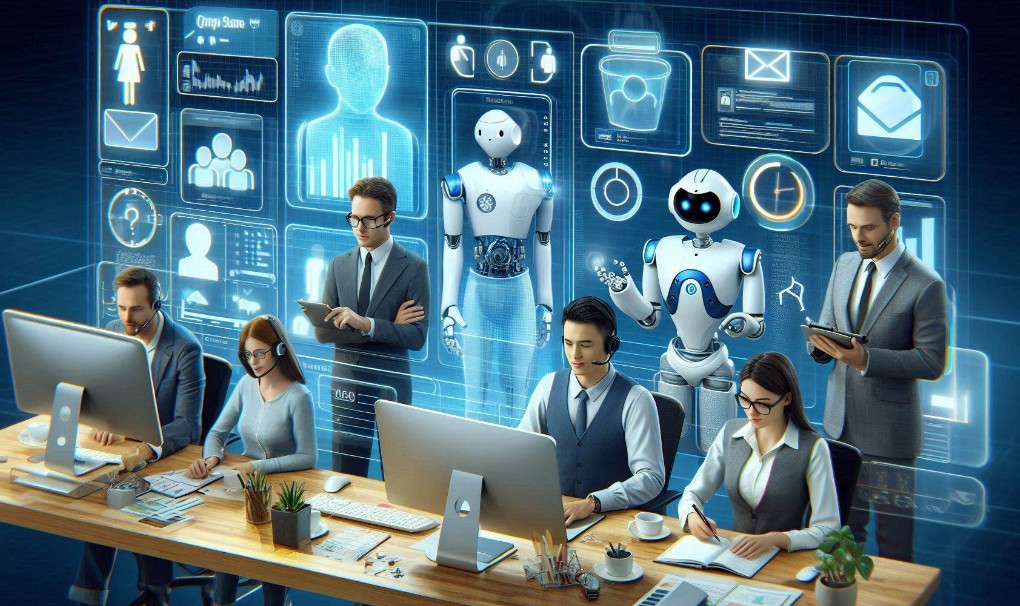In recent years, there has been a significant advancement in the field of Artificial Intelligence (AI) and Augmented Reality (AR). These technologies have become increasingly popular and have the potential to enhance virtual experiences in various fields such as gaming, education, healthcare, and...
Virtual Assistants How They Work and How They Are Useful

In recent years, a revolutionary shift has taken place in how tasks are completed across various industries. Automation tools have become a cornerstone of modern productivity, handling a range of responsibilities previously managed by humans. These technologies enable businesses and individuals to streamline operations, save time, and improve efficiency.
Advanced software solutions can perform repetitive or administrative duties, allowing people to focus on more strategic tasks. From managing schedules to answering inquiries, these innovations have proven their value in both personal and professional settings. As the capabilities of these systems grow, so does their potential to redefine how we interact with technology daily.
Incorporating such systems into everyday routines offers numerous advantages, particularly for those seeking to optimize their workflow. As these tools become more integrated into our lives, their role in simplifying complex processes cannot be overstated.
What Are Digital Helpers
In today's fast-paced world, there are technologies designed to assist with a wide range of tasks, making daily routines more efficient. These solutions perform a variety of functions, from handling simple queries to managing complex projects. As they evolve, their ability to take on more sophisticated roles continues to expand, allowing users to delegate various duties quickly and effectively.
Key Characteristics of These Technologies
These digital tools often operate through voice recognition or text-based interfaces, allowing users to communicate in natural language. Over time, they become increasingly adept at understanding specific needs and can even predict future requirements based on past interactions. The flexibility of these tools enables their use in various sectors, including business, customer service, and personal management.
Feature Description
| Task Management | Efficiently handles scheduling, reminders, and organization tasks. |
| Communication | Responds to emails, messages, and phone calls with pre-set or adaptive answers. |
| Data Processing | Analyzes and processes data for decision-making support. |
Applications in Everyday Life
Many individuals now rely on these systems to handle everyday challenges, such as managing appointments or making online purchases. Whether through a smartphone, smart speaker, or other devices, the integration of such technologies is seamlessly embedded into our daily tasks, offering greater convenience and support in personal and professional settings.

How Digital Tools Automate Tasks
Automation technology has transformed the way tasks are carried out, simplifying processes that once required significant human involvement. By leveraging advanced algorithms and machine learning, these tools can handle repetitive activities, allowing users to focus on more complex responsibilities. This shift not only boosts efficiency but also reduces the likelihood of errors, resulting in smoother and faster operations.
Task Management Automation
One of the primary functions of these systems is task management, where they can schedule appointments, set reminders, and manage calendars. By automating these actions, users no longer need to spend time organizing their day manually, as the tool ensures everything is set up and updated automatically based on preferences.
Task Automation Benefit
| Appointments | Automatically schedules, reschedules, and sends reminders to users. |
| Emails | Drafts, sends, and organizes emails according to preset instructions. |
| Data Entry | Processes large amounts of data without human intervention, saving time. |
Communication Automation
These digital tools also excel in communication tasks, responding to queries, generating responses, and even handling customer service inquiries. By automating routine communications, businesses can provide faster service, allowing employees to focus on more personalized or complex issues.
Benefits of Using Digital Helpers
Integrating modern automation tools into daily operations can lead to significant improvements in both efficiency and productivity. These technologies streamline processes, reduce human error, and provide more time for individuals and businesses to focus on high-priority tasks. As a result, users experience smoother workflows and better results.
Time-Saving is one of the most significant advantages of adopting such tools. By automating mundane tasks, users can allocate their time to more critical responsibilities, increasing overall productivity. Routine activities like scheduling, email management, or research can be handled instantly, saving countless hours.
Cost-Efficiency is another key benefit. Automating tasks reduces the need for extensive human resources to manage repetitive activities, cutting down operational costs. Small businesses, in particular, can benefit by utilizing these systems for roles that would otherwise require additional staff.
Moreover, these systems contribute to consistency in processes. Whether managing data or responding to inquiries, the output is uniform and reliable, ensuring quality control and reducing mistakes that can arise from human intervention.



